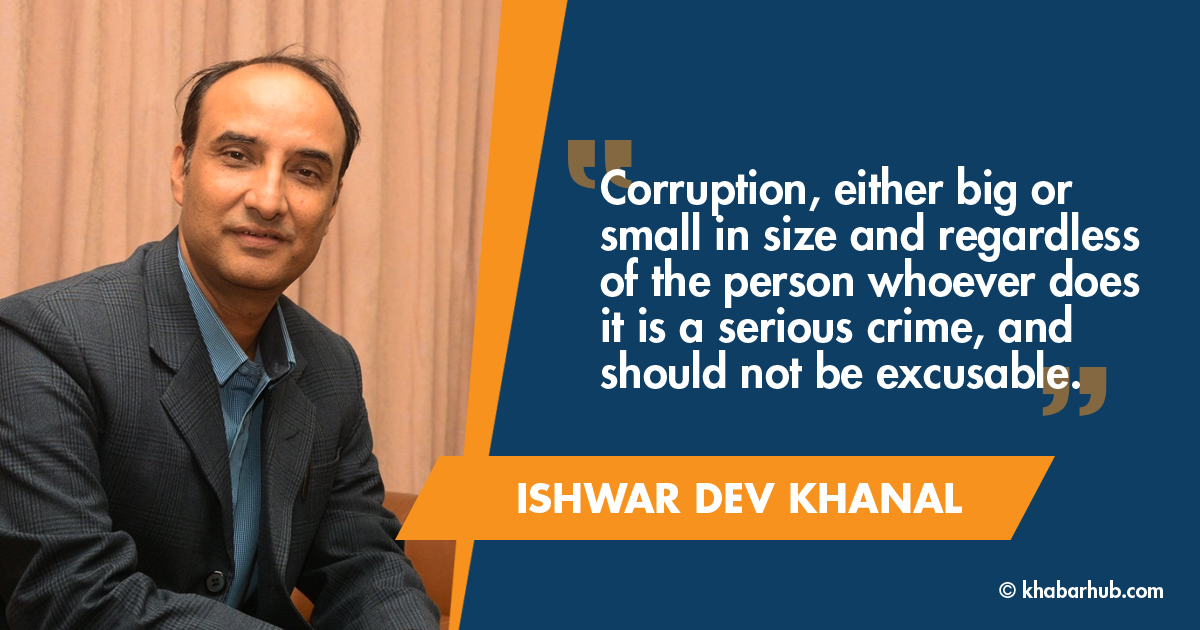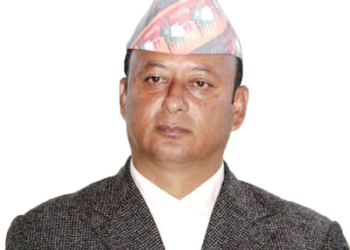On December 9, Nepal’s Prime Minister KP Oli very vehemently said that his government will not tolerate corruption cases at all.
Unfortunately, he faces severe criticism in the country over the way his government has handled the COVID-19 crisis.
Furthermore, there are charges of corruption against some of his cabinet ministers over the procurement of medical supplies from China amid the coronavirus pandemic.
In his message on the occasion of the International Anti-Corruption Day on December 9, Prime Minister Oli said his government was relentlessly working towards bringing the COVID-19-hit Nepal into normalcy by maintaining good governance.
He was trying to give a message — clear and loud – that corruption, either big or small in size and regardless of the person whoever does it, is a serious crime and it will not be excusable.
By saying so, PM Oli seemed to convey his point to the citizens and the international community that he would not tolerate corruption at any cost.
Minister Dhakal’s bad intention came to the fore after the Ministry of Health decided to award a contract of supplying medical gears to Omni Business International, a controversial business organization.
In fact, PM Oli did not hesitate to claim that incidents of corruption have drastically decreased in the period of two years since he took charge as Nepal’s Prime Minister.
Now consider this: Transparency International, a global anti-corruption advocacy group, in its report made public last week said “people’s perception of the state of corruption in Nepal is the worst among the 17 countries and territories surveyed by the group.
If the report is to be believed, 58% of the respondents “believed” corruption increased in Nepal in the past year, to the highest level among the countries surveyed.
The report further said “institutions of the President or Prime Minister made their worst impressions” on the people as most corruption institutions.
Likewise, 50% of the people surveyed labeled “the most or all people” associated with the institution of President or Prime Minister as the most corrupt, followed by Members of Parliament (MPs).
The global anti-corruption advocacy group said though Prime Minister Oli has repeatedly vowed to control corruption, his administration has done little to combat it.
The Transparency International report further claimed that PM Oli defended his cabinet ministers, involving former Minister for Communication and Information Technology Gokul Baskota and incumbent Minister for Health Bhanu Bhakta Dhakal – both alleged to have been involved in scandals.
PM Oli, meanwhile, claimed of drastically bringing down the incidents of corruption in the period of two years.
The report has also alleged PM Oli for allegedly using his power to award contracts to Chinese companies without any competitive bid.
However, despite PM Oli’s claim, corruption has been a deep-rooted problem in Nepal.
The issue of corruption, meanwhile, has plagued the Oli-led government amid the coronavirus pandemic following medical procurement-related allegations in April this year with Health Minister Dhakal and PM Oli’s coterie being accused of taking commissions.
Minister Dhakal’s bad intention came to the fore after the Ministry of Health decided to award a contract of supplying medical gears to Omni Business International, a controversial business organization.
And not to forget PM Oli’s confidante Baskota, the then Minister of Communication, who was allegedly caught on audio negotiating Rs 700 million “commission” with an agent of a Swiss firm in the process of setting up a security printing press. Since then, Baskota, who resigned from his post, has been nicknamed “700 million”.
However, despite all these widespread ado, PM Oli reiterated his call for cooperation from all communities, government and non-government organizations, and media to control corruption emphasizing the need to change people’s culture, attitude, habits, and social norms and values to bring about positive changes in the country.
Prime Minister Oli, therefore, must be acknowledged for his unwavering commitment to control corruption in the country since he has been reiterating his pledge of not getting involved in any immoral act.
Meanwhile in July 2020, the Global Watch Analysis, in its report, dubbed Nepal a “classic example” of how Beijing has been using corrupt leaders to make inroads into weaker countries.
The report has also alleged PM Oli for allegedly using his power to award contracts to Chinese companies without any competitive bid.
And, the allegations made by former Prime Minister and Chairman of the Janata Samajbadi Party Dr Baburam Bhattarai about Prime Minister Oli’s involvement in corruption in the Budhi Gandaki Hydropower Project is still afresh in the minds of the Nepali people.
PM Oli, however, rebuffed the allegations made against him saying that the government has shown zero-tolerance against corruption. He was quick to allege “some people of making irresponsible remarks” against him despite his untiring efforts to control corruption in the country.
Prime Minister Oli, therefore, must be acknowledged for his unwavering commitment to control corruption in the country since he has been reiterating his pledge of not getting involved in any immoral act.
To conclude with PM Oli’s commitment: “I will not involve myself in corruption, nor will I let others do so.”









Comment